It has been six years and Kabul has changed. My luggage was through booked from Bonn, via Munich and Dubai. Three flights in three different airlines with the tickets bought separately. Miraculously it arrived safely.
The banks at the airport were closed on Friday morning when I arrived. Maybe they?ll open tomorrow or the day after, they said. But things worked out. A SIM card was easy to get. It provided roaming Internet, but with a minimum charge for one month, I decided I?d stick to the Aina office where I was staying, for browsing. The SIM card man was going to change money for me as well. I suspected the rates weren?t the best, but at that stage, I wasn?t going to argue. More negotiations led to the bus to the parking lot and then the taxi.
The photographers at Aina had done well. The last time I?d seen Farzana Wahidy was at the All Roads Award Ceremony at National Geographic. I?d met Massoud Hossaini more recently at the World Press Award Ceremony in Amsterdam. He had just won the Pulitzer and it felt good to see how they?d progressed from the days I?d shared stories with the young and bright eyed youngsters in the grounds of Aina. But the office had moved. Luckily Farzana was able to direct the driver to the new location.
The new office was getting a fresh coat of paint and I made my way through stepladders to the TV room where the billiard table was stacked up with things temporarily relocated for the painters. But there were still people around and Aina looked like a busy place.
Farzana and Massoud soon came and we chatted about old times. I was to meet the other photographers on Sunday (today). That left me the rest of the day and Saturday to do other things. I had only seen the imported form of Buzkashi in Balochistan. But it was too hot for the sport in June and the other games were played early in the morning on Fridays, so I?d already missed them. But I did have other plans.
My main task was to identify work for a show I was curating for the Mus?e du quai Branly in Paris for 2013. Afghanistan was one of the eight countries I was covering. The trips to Nepal and Myanmar had gone well and I was looking forward to seeing fresh work from Afghanistan. I was also piggy backing for a story I was doing for Saudi Aramco World. Salma Hasan Ali, who was working with me on the story, had set up an appointment at what sounded like a wonderful school set up by Sadiqa Basiri Saleem.
I thought I?d also take pot luck in tracing an old friend. I?d met Aga Ghul in my last visit in 2006. Only then, I?d thought his name was Abdul Karim (my nonexistent Pashto and broken Urdu had obviously not served me well enough). The only clue I had was a photograph of Aga Ghul and his family, in their home and a vague landmark atop a hill. I didn?t know at that time, that I had the wrong name. We might well run this story on Saudi Aramco World, so I won?t give too much away at this stage. Anyway, there is plenty more to tell.
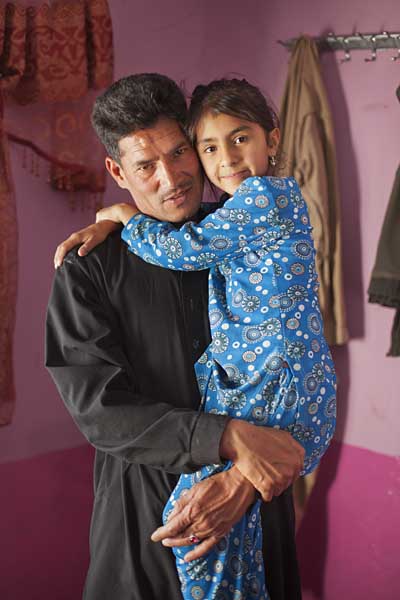
Continue reading “The spy who came in from Dhaka”
Tag: Afghanistan
Washington?s Hypocrisies
By Paul Craig Roberts
May 27, 2012 “Information Clearing House” –The US government is the second worst human rights abuser on the planet and the sole enabler of the worst?Israel. But this doesn?t hamper Washington from pointing the finger elsewhere.
The US State Department?s ?human rights report? focuses its ire on Iran and Syria, two countries whose real sin is their independence from Washington, and on the bogyman- in-the-making?China, the country selected for the role of Washington?s new Cold War enemy.
Hillary Clinton, another in a long line of unqualified Secretaries of State, informed ?governments around the world: we are watching, and we are holding you accountable,? only we are not holding ourselves accountable or Washington?s allies like Bahrain, Saudi Arabia, Israel, and the NATO puppets. Continue reading “Washington?s Hypocrisies”
Afghanistan Chronicles, Part 6:
?Near Ground Zero and in Af-Pak Region, Two Labyrinths
Friday, 30 March 2012 10:17By Suzanne Bauman, Jim Burroughs,?Truthout?| News Analysis

Ground Zero in New York City. (Photo:?Karen Blumberg / Flickr)The endless war on terror in South Asia – with Afghanistan, Pakistan, Iran, the United States, Great Britain, Russia, India, France, Germany, Spain, all players -? must seem like a senseless maze to the people forced to live with daily random violence in this region. In the United States, too many Americans have emotional yet uninformed responses: either “Kill our enemies before they kill us,” or “Get out of Afghanistan now.” The history of this region is more important than ever to study, as daily headlines inflame both sides without leading to solutions. Continue reading “Afghanistan Chronicles, Part 6:”
I Don?t Want To See Their Faces; I Don?t Want To Hear Them Scream
Published on Monday, March 12, 2012 by?Common Dreams
It seems the soldier in question was?not, in fact, representative of our brave fighting men and women. He was just another in the continuing series of?lone gunmen?who have been shooting up the world here and overseas for as long as any of us have been reading the newspapers. David Cortright, the director of policy studies at Notre Dame’s Kroc Institute for International Peace Studies, tells us “This may have been the act of a lone, deranged soldier.? I saw a headline that said he was a?rogue. OK; rogues do as often as not, ?go rogue? as no less an authority than Sarah Palin would have us know. So given time to reflect a bit, I guess I?m sorry I impugned our noble troops. Continue reading “I Don?t Want To See Their Faces; I Don?t Want To Hear Them Scream”
What does Afghanistan have to do with Vietnam?
Posted by Ethan Casey on March 11, 2012 ? Leave a Comment
The shooting early Sunday took place in Panjwayi district outside Kandahar city, in a village called Alkozai. U.S. military officials, speaking on condition of anonymity, said it was believed that the assailant had suffered a mental breakdown.
Continue reading “What does Afghanistan have to do with Vietnam?”
Hana Jheel
The security concerns in Quetta make it difficult for a foreigner to get about. Wearing Shalwar Kameez (had no idea so much cloth went into these garments) and having a beard helped. At least I made it outside of Quetta, if only to a tourist spot. Nothing as exciting as the Bazkhoshi event I went to yesterday,
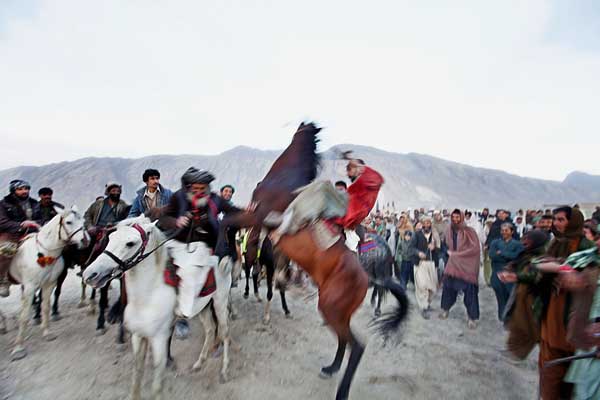
but hey, if your client needs a pretty picture and things are difficult, a lake at sunset will do nicely, thank you!
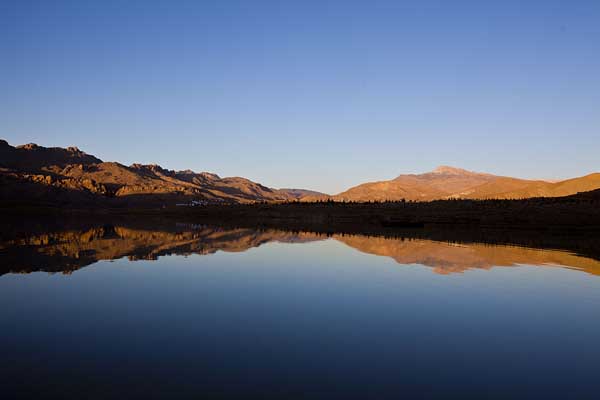
The garbage dump was apparently in the vicinity of an army camp. So my picture taking suddenly became a security concern. This time I was the peacemaker as the solder was picking on one of my minders. Having reduced testosterone levels, we went off to our next location, Quetta’s shoot up alley.
So driving out to see the clay mountains in Bostan was a welcome treat. An approaching sandstorm made it necessary to beat a hasty retreat. The blistering wind didn’t help. Careful watching the video if you have vertigo!
What really links the 'urinating marines' video with Abu Ghraib
In the digital age, people document and share everything ? even insults to the fallen
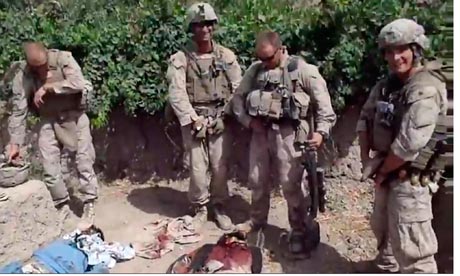
Marines Urinating on Dead Taliban: How Low Will We Go?
By Ethan Casey
In keeping with its maddening, self-regarding role as the American Pravda, a hand-wringing New York Times “analysis” worries that “the images could incite anti-American sentiment at a particularly delicate moment in the decade-old Afghan war.” Well, how could they not have that effect? And why shouldn’t they? Continue reading “Marines Urinating on Dead Taliban: How Low Will We Go?”
Bush, Blair found guilty in KL war crimes trial
By rahnuma ahmed
The accused — former President of the United States George W. Bush and former United Kingdom Prime Minister Tony Blair — were tried in absentia at the tribunal’s hearings.
Their absence, presumably, was not due to lack of knowledge for the Kuala Lumpur War Crimes Commission (KLWCC) had duly served them notice on charges of committing Crimes against Peace.
Established in 2008, the Commission had received complaints from Iraqi war victims and those who had been incarcerated in Guantanamo Bay (Gitmo for short, termed America’s ‘Gulag’ by many, a reference to forced labour camps in the former Soviet Union) after being illegally detained in Afghanistan and Pakistan in 2009.
Statutory declarations sworn by the victims were presented to the Commission; these were subjected to questioning to verify whether the facts and experiences claimed by the victims before, and during, detention were true.
The Commission conducted an extensive study and investigation for nearly two years, and finalised its report in May 2011.
The investigation revealed that none of the victims, neither those imprisoned at Gitmo, nor the Iraqis, had been charged for any actual offences. Neither had they been given access to legal representation. The due process of international law had not been complied with. All international conventions on human rights, on the dignity of captives had been suspended.
The invasion and occupation of Iraq by the combined forces of the US (148,000), UK (45,000), Australia (2,000) and Poland (194) resulted in the death of 1.4 million Iraqis. Countless others have undergone torture, and untold hardship. The international community has not paid any attention to the cries of these victims (‘complaints had already been filed at the International Criminal Court (ICC) against both Bush and Blair, but the ICC had refused prosecution‘).
KLWCC was established to ‘fill this void.’ To act as the people’s conscience by providing an avenue for victims of aggression and occupation to file their complaints.
Charges were framed by the Prosecution division of the Commission. The first charge was against Messrs Bush and Blair for committing Crimes against Peace.
The second charge is against 8 US citizens, for committing Crimes of Torture and War Crimes. It includes George W. Bush and other members of his administration, 2001-2008: Donald Rumsfeld, Dick Cheney, Jay Bybee (assistant attorney general, infamous for signing the memo which approved the use of torture) and John Yoo (department of Justice official, author of the ‘torture’ memo) among others.
The first trial, a four-day hearing was held at the headquarters of the Al-Bukhary Foundation at Jalan Perdana, Kuala Lumpur, November 19-22, 2011.
The seven-member Tribunal was headed by retired Malaysian Federal Court judge Dato? Abdul Kadir Sulaiman (member of the Council of Regency, state of Terengganu), and included other well-known and widely-respected figures.
The chief prosecutor was professor Gurdial S. Nijar, whose team included professor Francis Boyle, professor in law, Illinois, USA, and other lawyers.
Since the accused were not present at the hearing, nor had they appointed any counsel to represent them, the Tribunal appointed an amicus curiae (someone not a party to the case), to defend them; the defense team was headed by Jason Kay Kit Leon.
‘Sparks flew’ on the very first day of the hearing, says Cynthia McKinney (former US congresswoman, the Green party’s nominee for President).
Before the actual proceedings could begin, the defence counsel charged that Judge Niloufer Bhagwat would not be ‘fair’ as she had been one of the Judges at the Tokyo International Tribunal for War Crimes in Afghanistan (2004), and a prosecutor of George W. Bush at the People’s Tribunal on Iraq in Istanbul (2005).
In response, Francis Boyle argued that precedents exist at the International Court of Justice and the US Supreme Court, of judges rendering judgments ‘despite what might appear at first glance to be a conflict of interests.’ But Judge Bhagwat announced that she would recuse herself from Charge 1 deliberations; her decision was accepted and she left the Chambers. Judge Datuk Dr Zakaria Yatim too recused himself on objections made by the defence.
The defence’s next line of attack was that the Tribunal lacked the jurisdiction to consider the acts of the President and the Prime Minister. One anticipated by the prosecution which countered that, war crimes had been committed, that, by virtue of the Charter of the Kuala Lumpur War Crimes Commission it had jurisdiction to hear cases of war crimes. That, its proceedings were also inspired by previous precedents such as, the Tribunal on US War Crimes in Vietnam convened in Sweden and Denmark by philosophers Bertrand Russell and Jean-Paul Sartre (1967),?and the Tokyo Tribunal on Afghanistan.
Further, that international humanitarian law had developed in such a manner over the last fifty years so that ‘no head of state or nation can unilaterally renounce it.’ Nor, does the status of a head of state ‘constitute a defence.’
The Amicus Curiae entered a plea of not guilty on behalf of both the accused.
In his verdict, Chief judge Datuk Abdul Kadir Sulaiman stated, ‘the essence of legality is the principled, predictable, and consistent application of a single standard for the strong and the weak alike.’ But powerful states had selectively manipulated the law which undermined its legitimacy.
The invasion of Iraq was ‘an unlawful act of aggression and an international crime.’ It ‘cannot be justified under any reasonable interpretation of international law.’ The UN Security Council’s resolution 1441 ‘clearly does not authorise the use of military action to compel its compliance.’
Bush had contemplated attacking Iraq as far back as September 15, 2001, and had confided his intention to Blair ? this is undisputable. ?Both had directed air strikes against Iraq in 2002 without the sanction of the UN Security Council in order to weaken Iraq’s air defences, to prepare for the invasion of 2003. The Downing Street Memo (July 23, 2002) recorded a meeting between Blair and his intelligence officials.?Blair had admitted this as much at the Chilcot inquiry on January 14, 2011 when he said that his attorney general Peter Goldsmith had advised him that a second Security Council resolution? was ‘necessary under international law to authorise the use of military force against Iraq.‘
What occurred in Iraq amounts to ‘mass murder.’ It also threatens the future of the UN and the international law of war. ‘The accused took the law into their own hands.’ They acted with ‘deceit and falsehood’, flagrantly violating the international law of war and peace.
Deceit and falsehoods were many for, Iraq did not possess any weapons of mass destruction (WMD). Both Bush and Blair had admitted post-invasion that they knew intelligence reports on Iraq’s WMD were ‘unreliable.’
To bolster its arguments, the defence counsel mentioned Saddam Hussein’s brutality, his campaign of ethnic cleansing and use of chemical weapons against the Kurds and the Anfal campaign in 1988, but were unable to explain why US presidents Ronald Reagan and Bush senior had ‘sold Iraq chemical weapons and permitted their use.’
The defence also mentioned Al-Qaeda but there was ‘no credible evidence that Iraq had any connections with September 11, 2001 or with Al-Qaeda.’ Similarly, there was no evidence that Iraq was preparing ‘to invade or attack or threaten any nation.’
Iraq had been complying with UN inspections to disarm. The chief UN weapons inspector Hans Blix had requested another 4 months, to which all UN Security Council members, except the US and UK, had agreed.?In order to obtain a new resolution, the US had ‘forged documents to accuse Iraq of trying to purchase raw materials for WMD on the international market’, while the UK, in the absence of any substantial evidence ‘plagiarized from a student thesis and tried to pass off an out-of-date student essay as an authoritative intelligence report.’
The defence had argued that the situation in Iraq justified ‘humanitarian intervention.’ But official documents submitted by the defence were mostly from one agency of the US government, the US Agency for International Development (USAid), which, according to the the director of the Agency itself, was ‘filled with US undercover intelligence agents and propagandists.’
While the defence cited authority contending that the September 11 attacks demonstrated ‘a change in the nature of the threats confronting the international community’, the prosecution introduced evidence to show that Bush was planning an ‘invasion of Iraq as early as February 1998,’ that the Project for a New American Century (PNAC) mentioned the utility of a ‘new Pearl Harbor’ to galvanise public opinion. And, as the chief judge pointed out in his verdict, no evidence was introduced to establish a ‘planning or operational connection between Saddam Hussein and 9/11 event’. On the contrary, it is quite probable that, as the prosecution had argued, 9/11 was used as a ‘pretext’ for the invasion of Iraq.
The verdict states, ‘Yet it is still unsettled, what the events of September 11, 2011 are all about.’
The defence attempted to conclude its proceedings by evoking the ’emotionalism of the September 11 tragedy.’ It ‘changed things’, argued the defence counsel. ‘Those of us old enough to have lived through it, who saw it, who could understand it at the time ? we knew instantly that the world would forever be a different place. In our hearts, we knew things would never be the same.’ But regrettably, instead of ‘forgiving’ the? perpetrators of 9/11, Afghanistan, Iraq, Guantanamo happened. ‘We are fallible human beings. We make mistakes.’
At this point the Judges interjected that a better defense would have been ‘temporary insanity.’ When the Defense team began playing a video of the planes hitting the Twin Towers, professor Boyle termed it a ‘continuation of the Bush administration’s propaganda campaign against Iraq.’
Since the charges against the two accused were proven ‘beyond reasonable doubt’, they were found guilty. These crimes, as the African news agency Mathaba points out, carry the death sentence in many jurisdictions (Bush and Blair Accused, November 21, 2011).
When the defence levelled the charge against Judge Bhagwat’s impartiality, Judge Alfred Webre noted that, although appropriate notice had been served on George W. Bush, he had failed to appear at various people’s tribunals which sought justice for those who had become victims as a result of his Presidential decisions. However, since president Bush had not failed to appear at a Vancouver dinner at which he collected a US$150,000 speaking fee, ‘perhaps the Tribunal should have offered [him] a sizeable speaking fee in order to [ensure] his attendance at the Tribunal.’
In an interview to Press TV, Francis Boyle explained that Bush and Blair have been ‘found guilty under the same law as applied to the Nazis after the end of World War II.’ ?[0:40/2:33]? They are both ‘international criminals [who are] guilty of Nuremberg crimes against peace and they should be prosecuted by any state in the world that gets hold of them.’ ‘We will continue our efforts to bring Bush, Blair to justice and put them in jail.
Boyle, by the way, has recently offered pro bono services to any member of Congress who will introduce a bill of impeachment against incumbent president Barack Obama. Citing specific cases which make Obama eligible for impeachment ? the murder of US citizens, the war against Libya ? he stressed that Obama had ‘gone far beyond Bush.’ While Bush had tried to justify his preventive war policy (which did violate the standards set by the Nuremberg Tribunal) by saying it was for the national defense, ‘Obama simply declares that if a nation is violating his sense of “values,” it is fair game.’ Prof. Francis Boyle Offers To Draft Bill To Impeach Obama, EIRNS press release, November 1, 2011).
The Tribunal recommended that the KLWCC file a report with the International Court of Crime against both under the Nuremberg principles, including reports of genocide and crimes against humanity. That, the names of both be entered into the Register of War Criminals and be publicised. That, the KLWCC publicise the Tribunal’s findings to all nations who are signatories of the Rome Statue, so that they can be prosecuted if they enter the jurisdiction of these nations. And, that the KLWCC should suggest the passage of a resolution in the UN General Assembly to end Iraq’s occupation and to transfer sovereignty back to the Iraqi people.
But, since the Kuala Lumpur War Crimes Tribunal does not have any ‘formal enforcement power, as professor Glenn Greenwald points out, what use was the Tribunal? Bush and Blair both ‘ignored’ the summons. Every serious political and media elite in the US would ‘scoff’ at the Tribunal, for, in their view, nothing could be more ‘fringe and ludicrous’ than punishing Bush and Blair as war criminals. So, why bother to hold it?
If the principles of Nuremberg (1945-1949) — the trial and punishment of the major war criminals of the European Axis for having committed Crimes against Peace (planning, waging a war of aggression), War Crimes (violation of the laws or customs of war such as, murder or ill-treatment of prisoners of war, wanton destruction of cities, towns, villages), and Crimes against Humanity (murder, enslavement, extermination, deportation) ? serves a ‘useful purpose’, then, so too does the Malaysian tribunal.
While McKinney thinks that the best thing to come out of the Tribunal was the need for conducting an ‘independent investigation of 9/11.’ As a matter of fact, when the Defence counsel had raised the issue of 9/11, Judge Webre had suggested that the Tribunal should next move on to allegations about 9/11 being a false flag operation, that ‘expert witnesses should be brought to testify before the Tribunal about the truth of the Bush adminstration’s explanation of what happened on that [day].’
As Bengalis are wont to say, kaan tanle matha ashey. Pull at the ear, along comes the head.
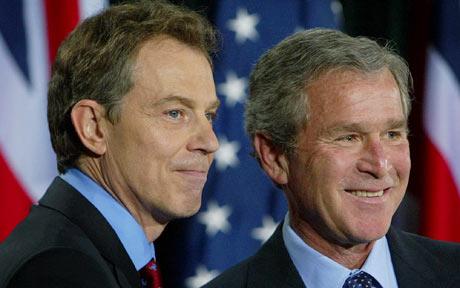
PIC 2
Datuk Abdul Kadir Sulaiman (centre) heading the Kuala Lumpur War Crimes Tribunal yesterday. The other judges are (from left) Tunku Sofiah Jewa, Alfred L. Webre, Salleh Buang, Zakaria Yatim, Niloufer Bhagwat and Shad Saleem Faruqi. – ROSDAN WAHID/New Straits Times http://www.nst.com.my/local/general/war-crime-hearing-against-bush-blair-begins-1.8353#ixzz1ehl3yetn
Published in New Age, Monday November 28, 2011
9/11, growing disbelief at US government's account a decade later…
Subscribe to ShahidulNews
By rahnuma ahmed
Today, September 11, 2011, is the tenth anniversary of the attacks on New York city’s Twin Towers, and the Pentagon.

Eleven days after the attack, president Bush, in his address to a joint session of the Congress had said, the attacks were carried out by al Qaeda, a “collection of loosely affiliated terrorist organizations” because they hate our freedoms. Freedom of religion, speech, vote, and assembling and disagreeing with each other. Briefly put, a hatred for the American way of life. They kill not only to end lives “but to disrupt and end a way of life.” “They stand against us because we stand in their way” (September 20, 2001).
But?and I hope this will give grounds for thought to readers and friends, who still cling to the idea that Osama bin Laden was responsible for the attacks, for the deaths of three thousand innocent civilians?the Bush administration had decided by 11am, September 11, 2001 that al-Qaeda was responsible for the attacks. Prior to conducting an indepth police investigation.
That same evening, at 9:30pm, a War Cabinet, with a select number of top intelligence and military advisors, was formed. That very night, at 11:00pm, a mere 12 hours after Bush administrators had declared al Qaeda to be responsible, the `War on Terror’ was officially launched (Michel Chossudovsky, The Truth Behind 9/11, Global Research, September 11, 2008).
Less than 4 weeks later, Afghanistan was bombed and invaded. The occupation, as we know, continues. And US troops, as recent press reports indicate, may stay in Afghanistan until 2024. Continue reading “9/11, growing disbelief at US government's account a decade later…”
